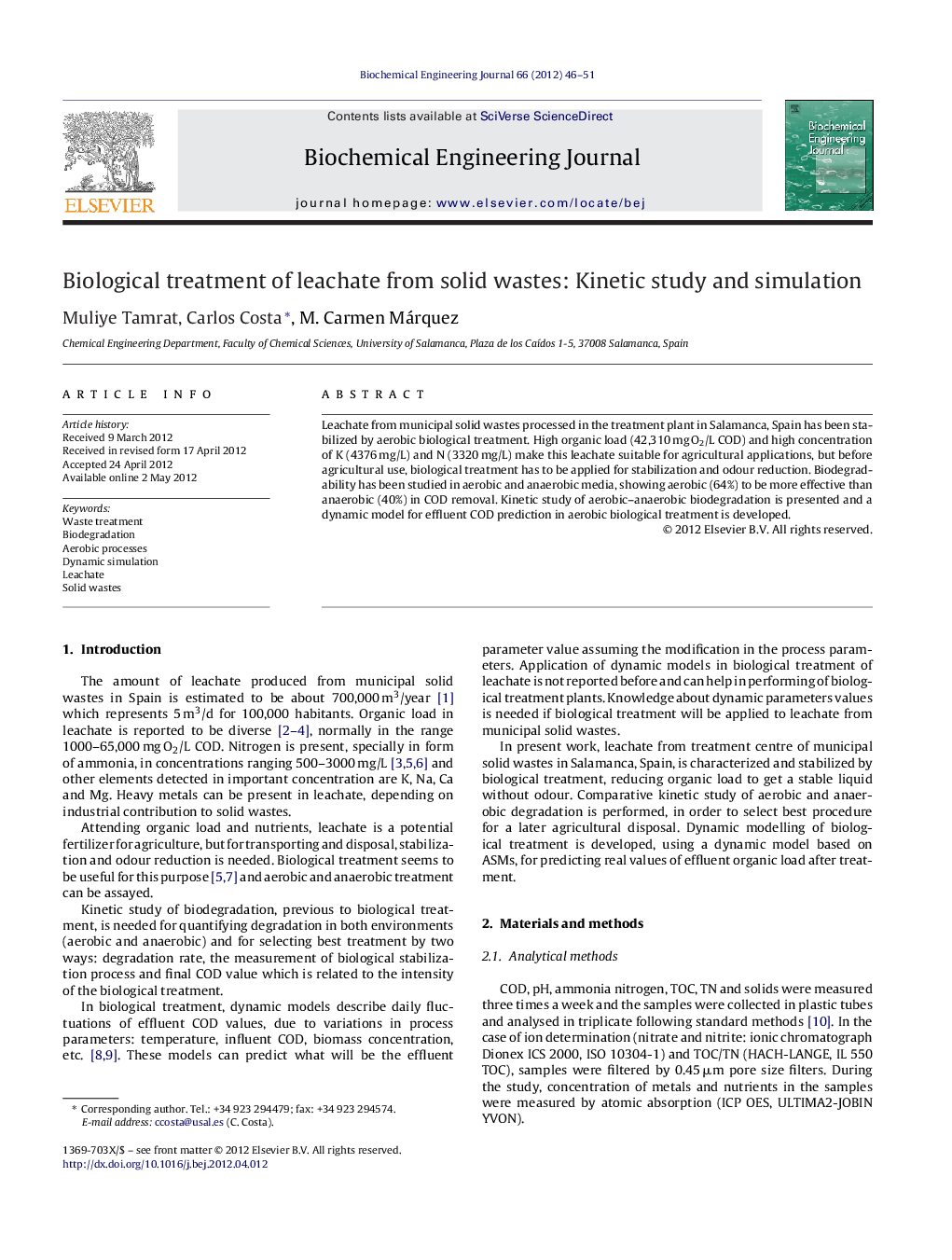| Article ID | Journal | Published Year | Pages | File Type |
|---|---|---|---|---|
| 3630 | Biochemical Engineering Journal | 2012 | 6 Pages |
Leachate from municipal solid wastes processed in the treatment plant in Salamanca, Spain has been stabilized by aerobic biological treatment. High organic load (42,310 mg O2/L COD) and high concentration of K (4376 mg/L) and N (3320 mg/L) make this leachate suitable for agricultural applications, but before agricultural use, biological treatment has to be applied for stabilization and odour reduction. Biodegradability has been studied in aerobic and anaerobic media, showing aerobic (64%) to be more effective than anaerobic (40%) in COD removal. Kinetic study of aerobic–anaerobic biodegradation is presented and a dynamic model for effluent COD prediction in aerobic biological treatment is developed.
► Leachate from solid wastes has been stabilized and degraded by aerobic treatment. ► High content in organic matter and nutrients makes it suitable for agricultural use. ► Dynamic modelling predicts effluent COD value after biological treatment. ► Leachate is a half-biodegradable liquid (Ks = 18,950 mg/L, μH,max = 0.21 d−1).
